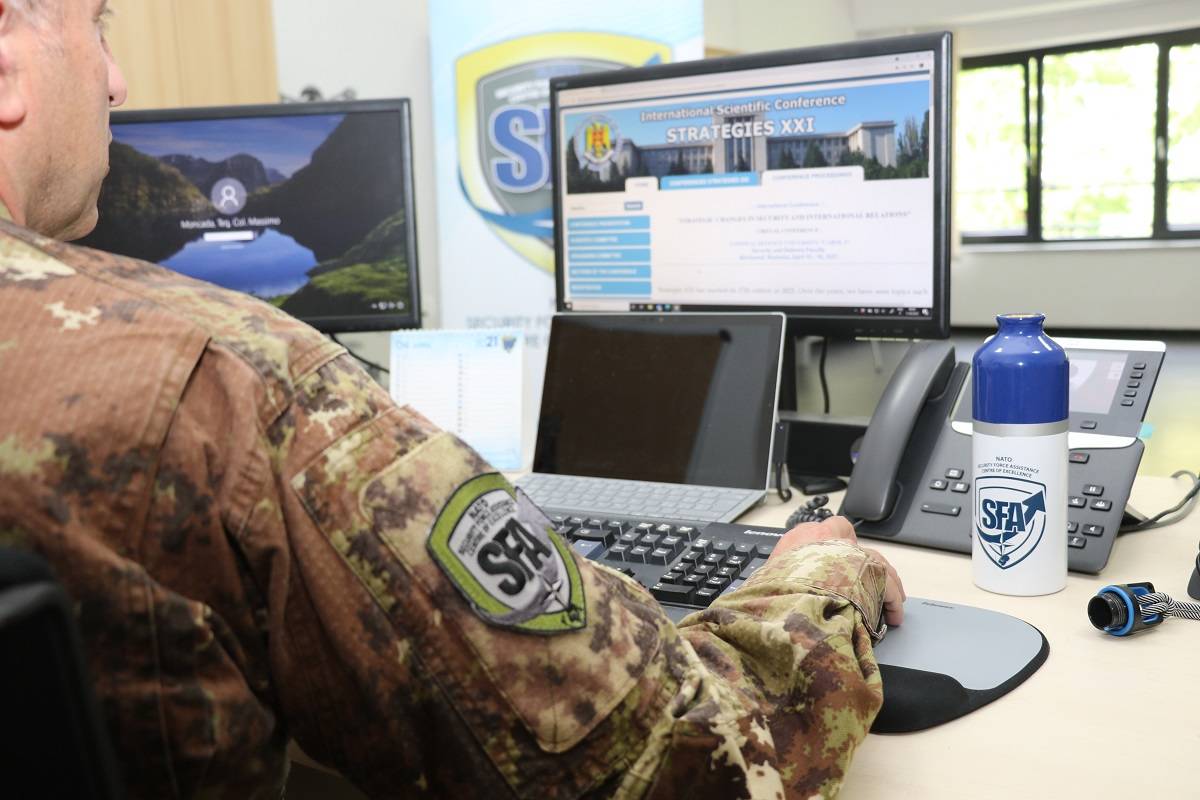
NATO SFA COE joined in the International "Strategic Conference STRATEGIES XXI"
On the 15th and 16th of April the
NATO SFA COE took part in the “Strategic changes in Security and International
Relations" within the International "Strategic Conference STRATEGIES
XXI" organised by the Romanian National Defence University.
Launched in 2005 by "Carol I" National
Defence University, STRATEGIES XXI aims to establish and strengthen international
partnerships with civilian and military educational and research institutions
discussing future trends and challenges for security and international
relations.
After an initial plenary
session discussion of EU security and defence culture, digital platforms, human
performance modification theory and methodology in science, the Conference was divided
into three breakout sessions to cover various topics.
In those sessions, certain aspects emerged that fall within
the scope of some of the NATO SFA COE’s ongoing projects.
·
Military foresight: the
case of Poland.
Translating
NATO Strategic Foresight Analysis trends to the Polish context reaffirmed the
holistic approach to security and operational environment analysis
characterized by volatility, uncertainty, complexity and ambiguity. In the 2035
security environment scenarios the role of the multi-domain approach will be
pivotal and the military instrument should be adaptive and flexible to face countering
threats and adversaries, which can operate below the threshold of armed
conflict and engage in non-lethal activities in the so-called grey zone.
·
Challenges and
opportunities for intelligence services in the context of technological
development and information overload.
To
mitigate the impact of information overload and to exploit the predominance of digitalization
there is a need for the intelligence field to move from the concept of
superiority of information to the concept of superiority of knowledge
considering the challenges and opportunities of the modern information flow.
·
Syria, "the war with
multiple proxies".
The
War in Syria provides evidence and examples of a complex conflict where
strategic and powerful interests carried out by multiple proxy actors have led to
violations of international humanitarian law and human rights with consequences
that both today and in the near future will impact the balance of power in that
area.
·
The contribution of
modern military leadership in implementing the sustainable development goals.
The
Sustainable Development Goals (SDG) are the blueprint to achieve a better and
more sustainable future for all. Modern military leadership, with a combined
use of appropriate leadership styles and qualities (adaptive leadership with a
multi-domain approach in a comprehensive framework), could be the key to
implement the SDGs.
In conclusion, due to the complexity of future
scenarios involving different dimensions and domains, it is fundamental to
strengthen the importance of the multi-domain approach for the “sustainable” military
instrument of power (MIoP) that needs to be ever more flexible and adaptive.
In dealing with new crises where multiple proxy actors
are involved, the enhancement of the capacity to map and analyse the actors and
their influence in a certain area can give a tangible support to planning, Grey
Zone concept development and Human Capital development (for future leadership
and Advising capabilities). The SFA approach can be fundamental for the
enhancement of the Future Leadership and Advising skills. In this regard, NATO
will be able to exploit its wide experience in conducting SFA activities and the
wealth of research developed on those topics by the NATO SFA COE and the SFA
Community of Interest.







